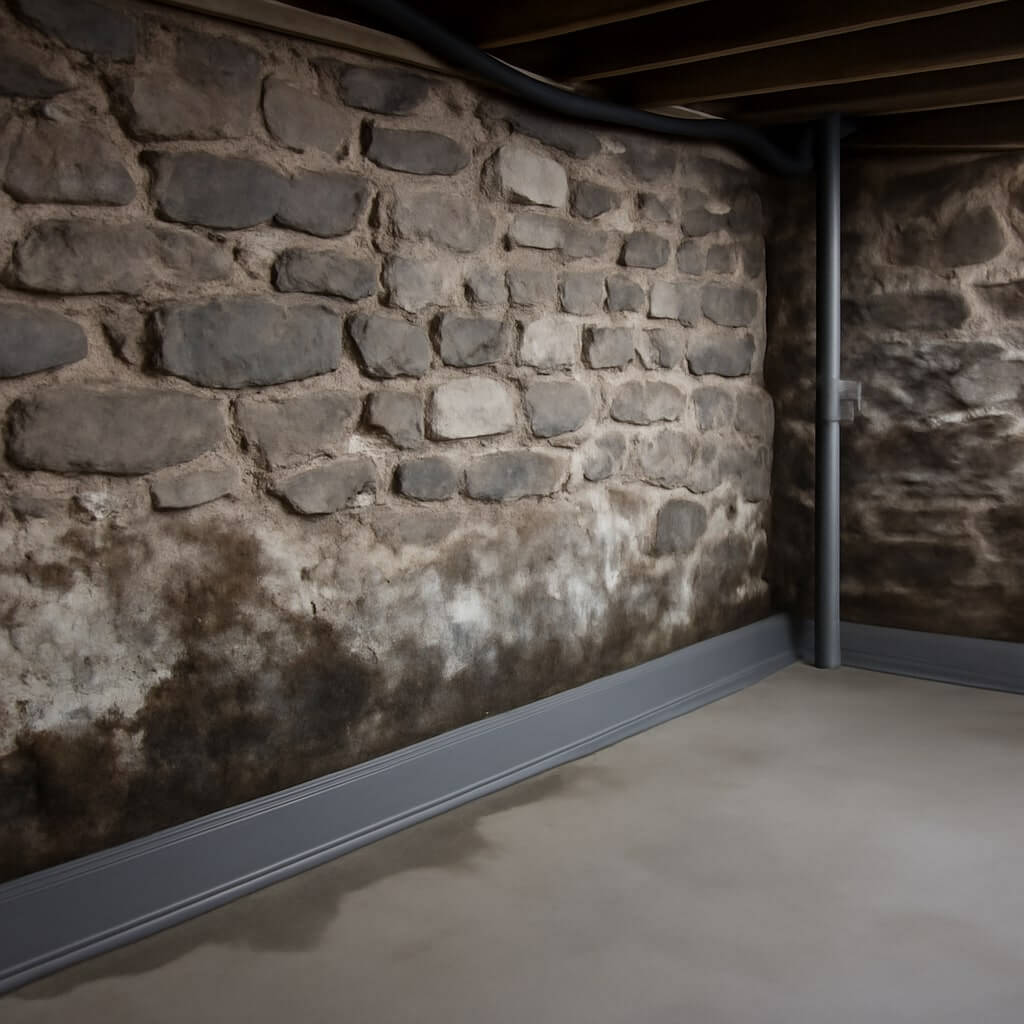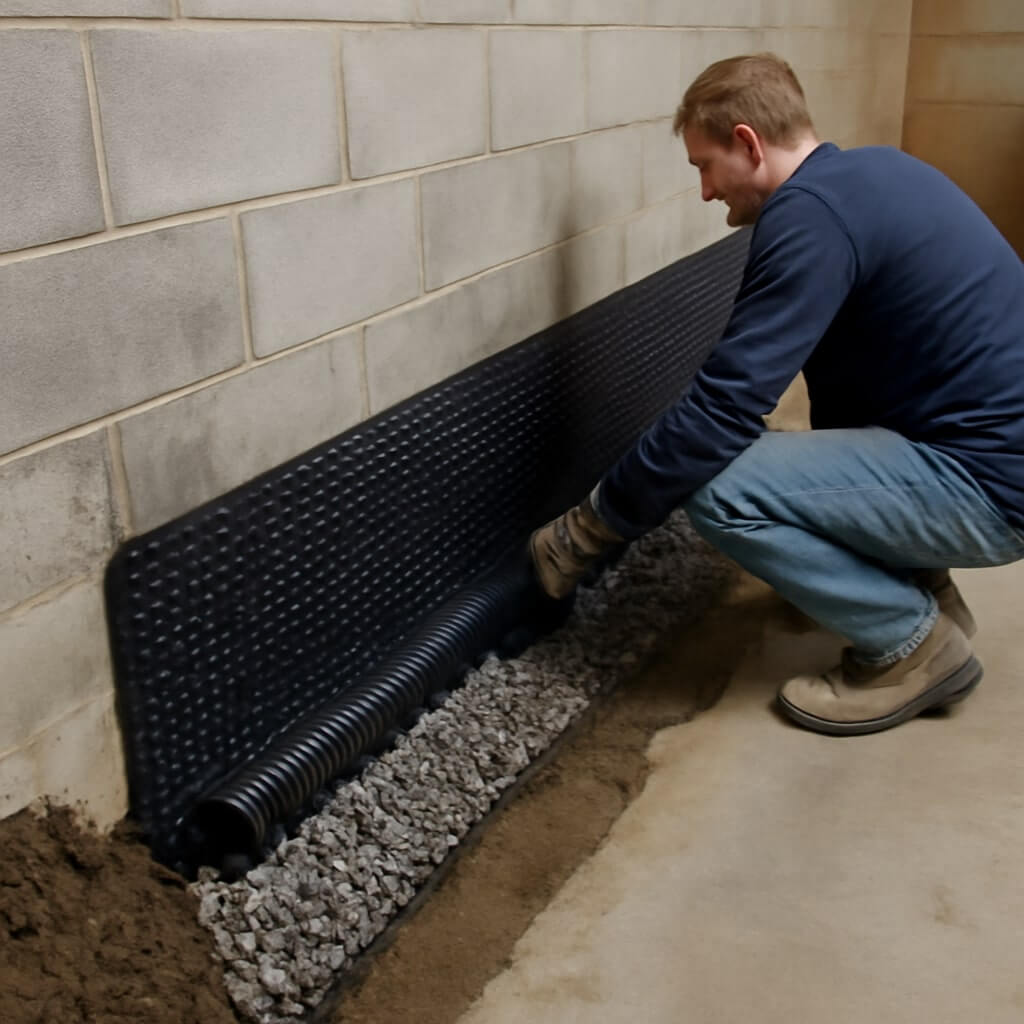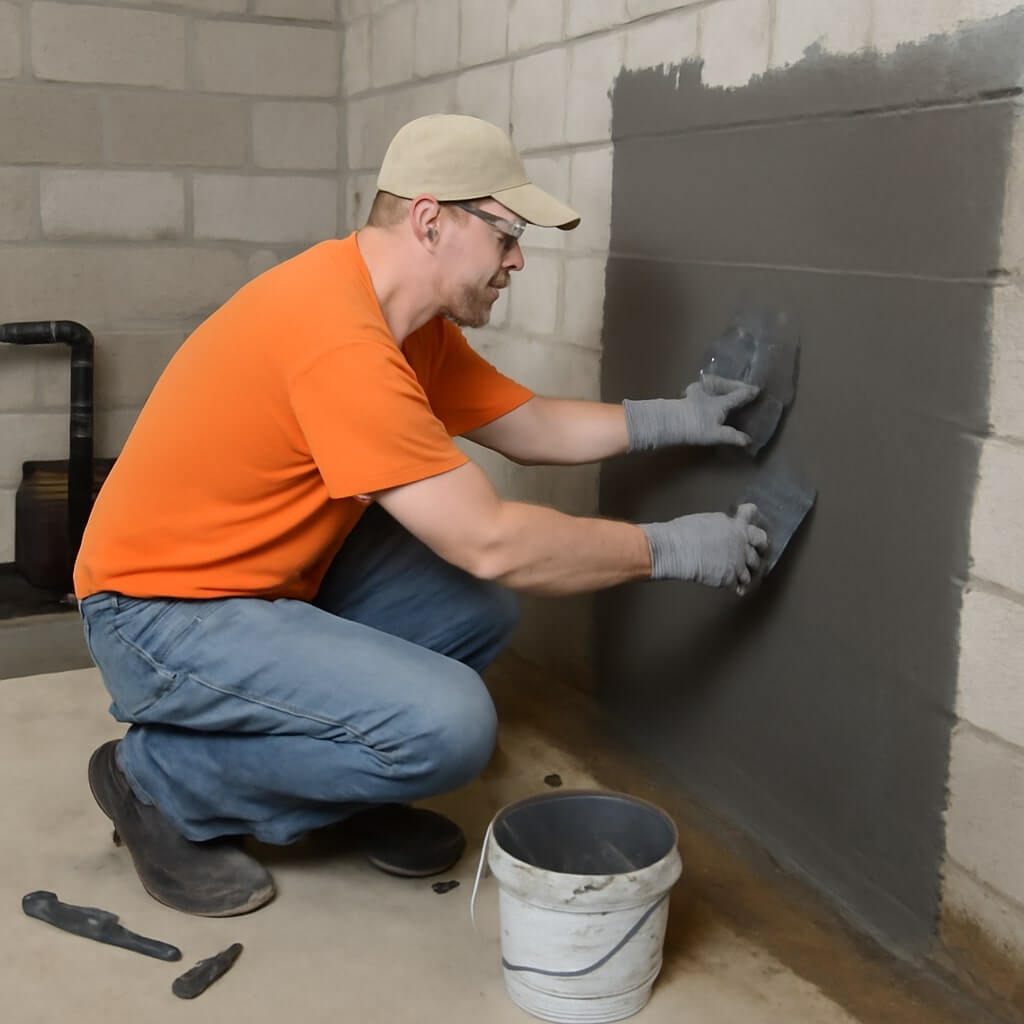Fieldstone basements are a hallmark of historic homes, offering rustic charm and robust construction. However, they come with unique waterproofing challenges due to their porous nature and mortar joints that degrade over time. This comprehensive guide explores everything you need to know about fieldstone basement waterproofing—from causes of water intrusion to proven solutions, maintenance tips, and expert FAQs.
Why Fieldstone Basements Are Prone to Water Problems
Fieldstone foundations were popular in construction during the 18th and 19th centuries. These foundations, while durable, were not built with modern waterproofing techniques in mind.
Key Vulnerabilities:
- Porous stones and mortar: Allow seepage of moisture over time.
- Lack of vapor barriers: No protection against rising groundwater or lateral water pressure.
- Mortar deterioration: Causes gaps and cracks that let water enter.
- Poor drainage: Older homes often lack exterior drainage systems.
Signs You Need Fieldstone Basement Waterproofing
Identifying the early signs of water issues is crucial to avoid structural damage and mold growth:
- Damp or musty smell
- Water stains on walls
- Efflorescence (white powdery substance)
- Peeling paint or bubbling drywall
- Mold growth
- Visible water seepage during rain
Top Fieldstone Basement Waterproofing Methods
1. Exterior Waterproofing
Involves excavating around the foundation and applying a waterproof membrane. It’s effective but often costly and invasive.
- Steps:
- Excavation
- Crack repairs
- Application of waterproof coating/membrane
- Installation of drainage tiles
2. Interior Waterproofing
Often the more affordable and practical approach, especially for homes with accessibility constraints.
- Includes:
- Applying waterproof sealants or paints
- Installing interior weeping tiles
- Sump pump installation
- French drains
3. Repointing and Replastering
Cracked or eroded mortar between stones is repaired using hydraulic cement or lime mortar to restore water resistance.
4. Dehumidification
While not a direct waterproofing method, dehumidifiers reduce basement humidity and prevent mold.
Long-Term Maintenance Tips
- Inspect foundation seasonally for cracks and gaps.
- Clean and maintain gutters and downspouts.
- Ensure soil grading slopes away from the house.
- Use a vapor barrier on basement walls or floors.
- Test your sump pump every few months.
Benefits of Waterproofing a Fieldstone Basement
- Structural Integrity: Prevents stone displacement and mortar breakdown.
- Healthier Living Space: Reduces mold and mildew.
- Increased Home Value: A dry basement is a strong selling point.
- Energy Efficiency: Drier air is easier to heat and cool.
- Peace of Mind: Reduced risk of flooding and damage.
SEO Best Practices in Fieldstone Basement Waterproofing
To attract leads in your area, make sure your service pages and blog content include:
- Local keywords (e.g., “fieldstone basement waterproofing in Boston”)
- Service-based keywords (e.g., “crack repair,” “sump pump installation,” “exterior sealing”)
- Rich FAQs with long-tail keywords
- Image alt texts with descriptions (e.g., “Before and after of waterproofed fieldstone basement wall”)
Frequently Asked Questions (FAQs)
Can you waterproof a fieldstone basement from the inside?
How long does fieldstone basement waterproofing last?
Is it safe to finish a fieldstone basement after waterproofing?
What’s the cost of waterproofing a fieldstone basement?
Should I hire a professional or DIY?
Conclusion
Waterproofing a fieldstone basement is a valuable investment in the longevity, health, and value of your historic home. Whether you choose interior methods, exterior solutions, or a combination of both, taking proactive steps ensures your basement stays dry and protected year-round.




